
Interior Design BA(Hons) (Online)
Become a resilient and commercial interior designer.
Course overview
Our society needs a new model of sustainable living in thriving and connected communities, and interior designers have a role to play, now more than ever, to resolve some of these challenges.
Taught by practising academic staff and with the opportunity to collaborate with industry partners on real-world scenarios, this Interior Design online degree gives you the freedom to craft your interior design future and test the bounds of what's possible to achieve in interior spaces.
You’ll be designing for positive impact, creating sustainable interior solutions while working on current challenges and delivering forward-thinking projects, such as immersive, interactive experiences and environments.
Why study this course at Falmouth?
- Join a global community of creatives and collaborate on local and global design scenarios
- Be supported to take risks and pursue disruptive approaches to real-world problems
- Learn technical and business skills from industry-savvy professional tutors with a wealth of commercial expertise across the retail, hospitality and leisure sectors of Interior Design
- Foster sustainable approaches to interior design, from strategy through to materiality, construction methods and applications
Course details
On this online Interior Design course, you will develop the skills needed to counter current design challenges, respond to societal and economic shifts and trends in the development of innovative solutions that commercial design thrives on.
You will employ both fine detail approaches and large-scale planning strategies to deliver design projects using industry-recognised computer-aided design (CAD) and presentation software.
Through collaboration and responding to industry-informed briefs, you will develop a professional identity that sets you up for employment within an interior design practice or to develop your own start-up.
Course study options
On this accelerated online Interior Design degree, you’ll have the opportunity to gain a BA(Hons) degree over two years full-time or three years part-time.
From module information to course aims and assessment criteria, discover the full course details:
You will be challenged to respond to real world design scenarios, and consider the role of commercial space, client and user-centric requirements with a focus on the hospitality and leisure sectors. You will be introduced to core skills and theories within the Interior Design discipline.
Online workshops in 2D and 3D hand drawing and sketching, 2D CAD and presentation software will introduce you to the tools and conventions of the design industry and enable you to develop your own means of effectively communicating your ideas.
You will begin to experiment with the vast array of materials available to interior designers to create compelling colour designs, materials and finish palettes which will enhance your spatial concepts. You will also learn about sustainability and the application of sustainable approaches and ethical practices in your design work.
Modules
Interior Design Toolbox
Through a structured design project focusing on the leisure industries, you will be introduced to the language and principles of working with interior spaces from both a user and client perspective.
From Unsustainability to Sustainability
This module introduces critical thinking and communication skills in relation to the history of the Interior Design profession, with a focus on the evolution of sustainable design theory and its implications for the future of the industry.
Sustainable and Ethical Luxury
This module will explore the potential for sustainable luxury, the role of conscious consumerism and the consideration of environmental impact when designing for a future of sustainable travel. It will also investigate the significance of health and wellbeing within the context of hospitality and travel.
Materiality: Surface and Texture
This module introduces you to the built reality of a scheme by developing the ‘materiality’ of design concepts and interior specification, considering colour, materials and finishes.
Commercial design thrives on the ‘new’. Through a series of selected projects, you will be encouraged to challenge the norm through originality and being ‘disruptive’. You will consider the psychology of space and changing consumer behaviour in developing design solutions to current societal challenges, as well as extending your understanding of sustainable working methods and approaches to specification.
Detail design will be introduced, showing how a design concept moves from the idea into built reality, while also learning how building regulations impact on design proposals and how building services are integrated into a design solution. Lighting design will also be introduced. Workshops in 3D digital software will help you to refine and present your ideas in a professional manner.
Modules
Brandscape: Experiential Interiors
Understanding brand ethos and its application to the creation of an interior branded environment, this module will encourage you to take a more questioning approach to the nature of design and will reward risk-taking as part of your design practice.
Detail Design: Bespoke
In order to create innovative design solutions, you will develop your understanding of how elements within a visual concept can be designed, detailed and assembled sustainably.
Re-imaging Retail
This module explores opportunities for the redevelopment of the high street caused by the shift from traditional bricks and mortar retail to online shopping.
Collaborate
Working as part of a team, you'll work on 'Challenge Briefs' that reflect the sort of assignments you could expect to be working on in industry. Developing your 'soft skills', like communication, problem-solving, critical thinking and leadership, you'll sharpen your ability to work well as part of a group to produce outstanding work.
Pursue your preferred pathway in Interior Design and challenge yourself by asking: ‘what can interior design be?’ Liaise with industry professionals and design mentors in your final major project to create a career-launching portfolio.
You will create your own professional identity and online presence, developing your project management skills and business awareness, including cost control, fee structures and timelines. Advanced 3D CAD workshops will allow you to create immersive, interactive experiences and environments.
Modules
Future Environments: Work, Rest and Play
This module gives you the opportunity to test an independently identified and researched design or societal challenge, through the application of research methodologies to innovative design practice.
Professional Practice
In this module, you will explore the ‘built reality’ of a project through an understanding of professional industry practices and procedures.
Career Portfolio
In preparation for your engagement with industry or post-graduate study, you will showcase your skills and design ability through the creation of an impactful portfolio.
Professional Identity
Following your own interests as a designer, you will build your professional identity reflecting your career ambitions, an understanding of professional business and project management processes, and skills relevant to the industry.
As part of our process of continuous improvement, we routinely review course content to ensure that all our students benefit from a high-quality and rewarding academic experience. As such, there may be some changes made to your course which are not immediately reflected in the content displayed on our website. During your course, module content may be updated or optional modules withdrawn in order to maintain the best academic experience. Any students affected will be informed of any changes directly.

Got questions about the course, funding or online study?
Your Course Advisor Claire is here to help.
Our students and graduates
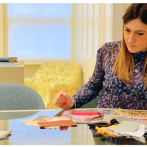
"I have learned so much from the teachers, the tutors, and my student peers and I am developing my design voice more and more."
Ivana Cicchelli, student

"An online degree can open doors for me that an on campus one could not. I've truly loved every second of the course so far."
Libby Watkins, student
Stories from our community

Product design graduate on designing award-winning modular footwear
30 January 2026
BA(Hons) Sustainable Product Design graduate Ben Mancini has been recognised internationally after w...

Online Interior Design graduate wins final year project competition
30 January 2026
BA(Hons) Interior Design (Online) graduate Bri Riley-Moore drew on her professional background in we...
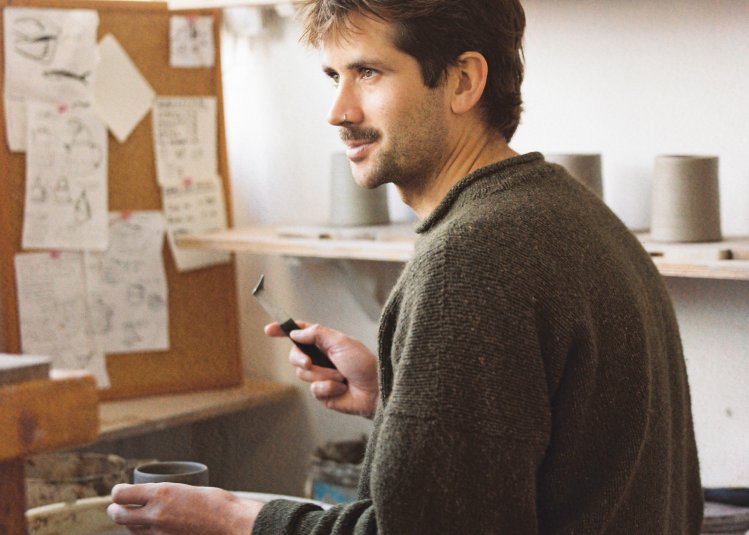
Meet the Falmouth graduate behind new pottery studio Out West
29 January 2026
Falmouth graduate Louis Domville-Musters is the multi-talented creative behind Out West Studio, a ne...

Falmouth University awarded £1.4m to power the future of creative design and manufacturing
18 November 2025
New state of the art design and advanced manufacturing facilities for students at Falmouth Universit...

Sustainable Product Design alumnus on material innovation and returning to campus to teach
13 November 2025
Charlie Ruck is a Sustainable Product Design BA(Hons) alumnus who is forging a multi-faceted career....
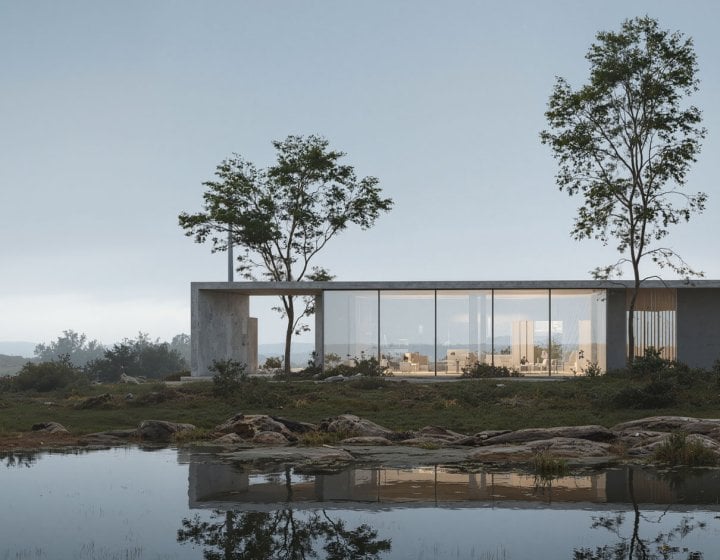
Interior Design Online student launches visualisation business
06 November 2025
For London-based Interior Design (Online) student Gianluca Onnis, what began as an interest in conce...
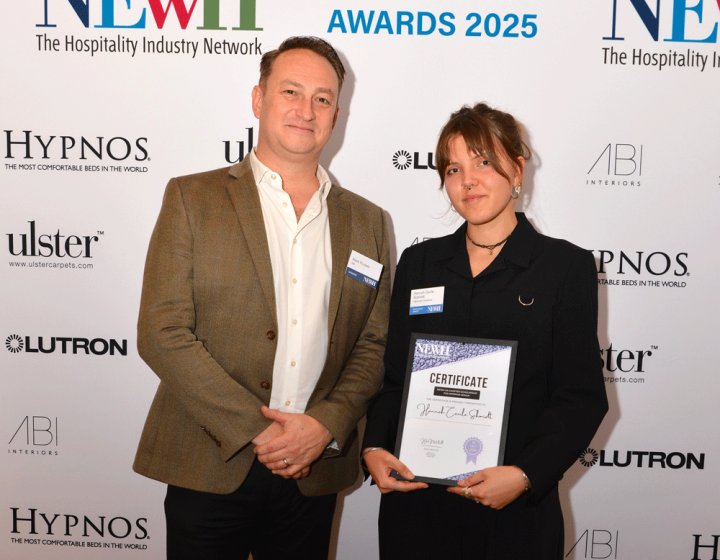
Interior Architecture student wins scholarship with industry-ready approach to design
28 October 2025
Interior Architecture BA final-year student Hannah Schmidt has won a £3,000 scholarship with The Ho...
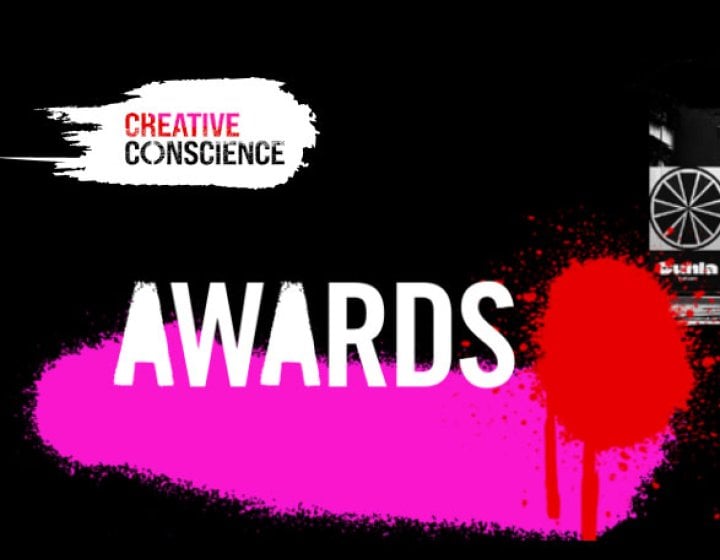
Students win big at Creative Conscience Awards 2025
07 October 2025
Eight students have been awarded the top awards at this year’s Creative Conscience Awards, with th...

Graduation Success Stories: Where our 2024 graduates are now
04 July 2025
For more than a century Falmouth has shaped generations of artists, designers, makers and entreprene...
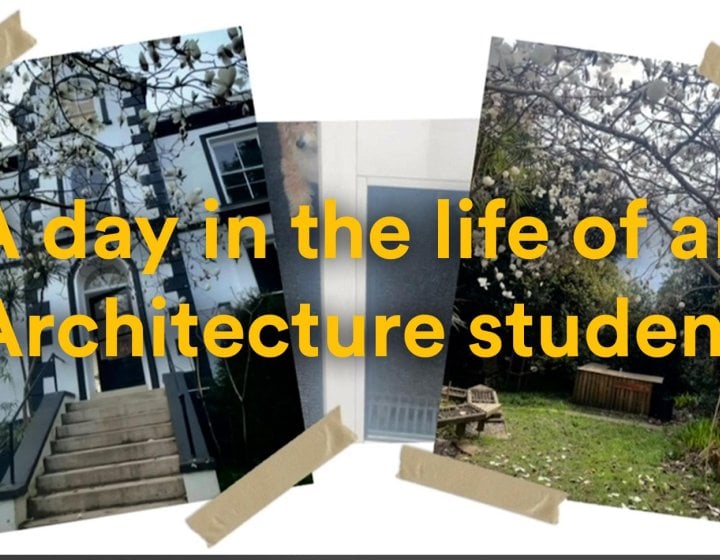
A day in the life of an Architecture student
10 June 2025
Millie, a first-year student, shows us a day in the life studying Architecture at Falmouth.

Lecturer to host workshop on sustainable architecture
29 May 2025
Senior Lecturer Sarah Riviere will lead an international workshop on sustainability in architecture ...
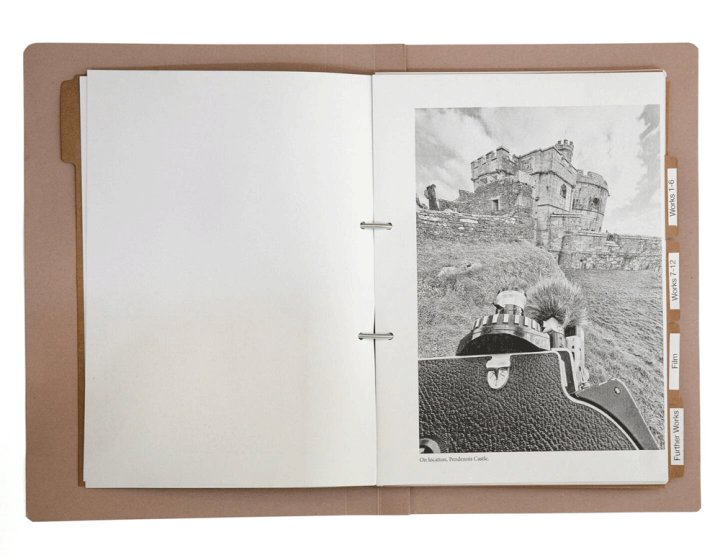
Fine Art students create English Heritage-commissioned works inspired by Pendennis Castle
20 May 2025
‘Monuments of Anticipation’ is a new short film, publication and exhibition that has been commis...

“When we support each other, we create magic”: Interior Design Online student Gabriella Horvath
01 May 2025
When the Employability Service advertised an internship with The Live Design Project, a role intende...
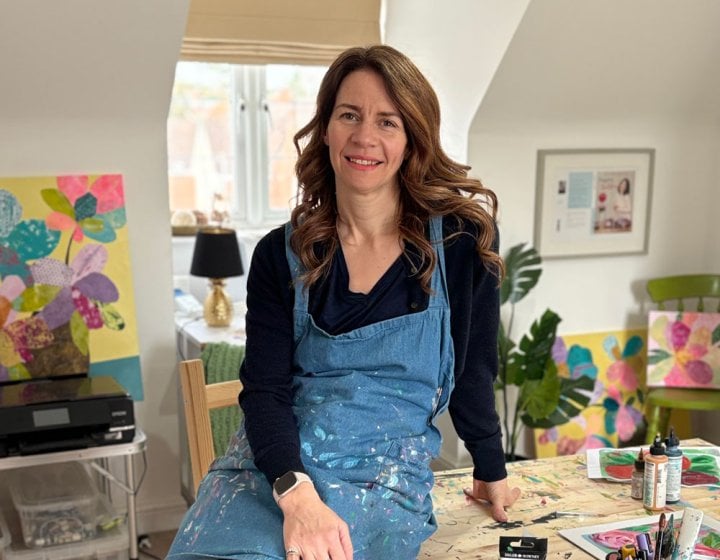
Interior Design tutor Claire Arnott moves her art to a gallery
21 February 2025
Claire Arnott, an Interior Design BA(Hons) (Online) tutor, has taken her love for creating art into ...
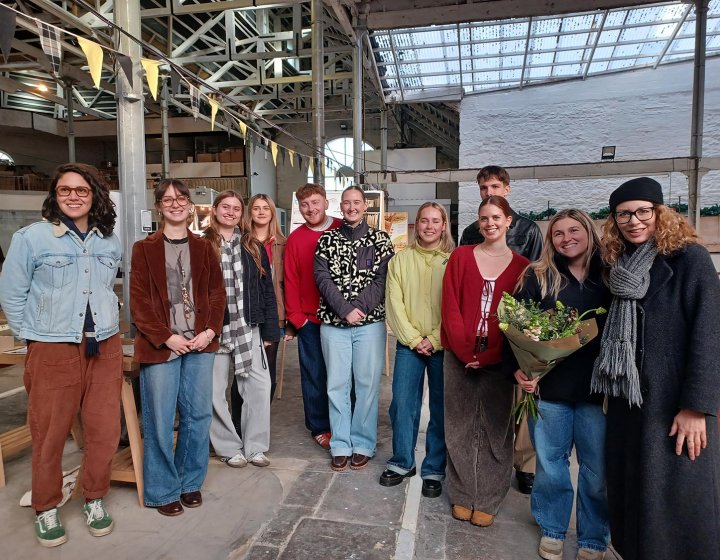
Interior Architecture students reimagine historic St Austell Market House
03 February 2025
Students have been working on an ambitious project to breathe new life into the heritage building.

Online Interior Design student lands exciting new job at leading Landscape Design company
24 January 2025
Libby Watkins, a student on our Interior Design BA(Hons) (Online) course, recently landed a role as ...
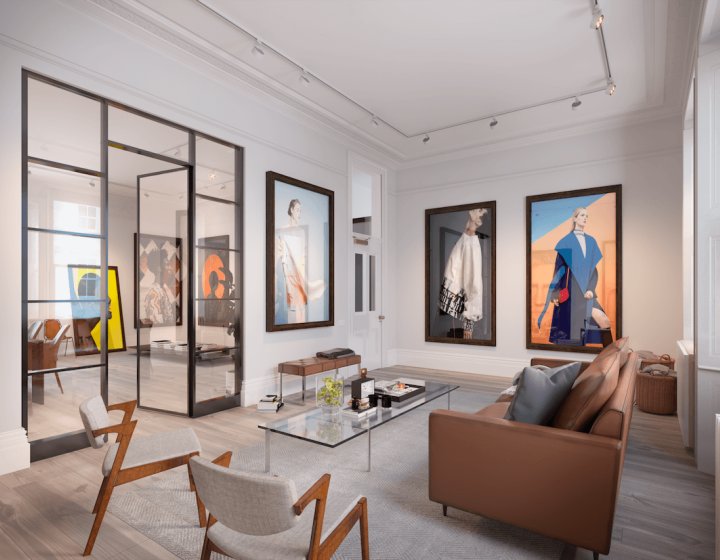
The difference between interior design and interior architecture
06 January 2025
Understand the key differences between interior design and interior architecture.
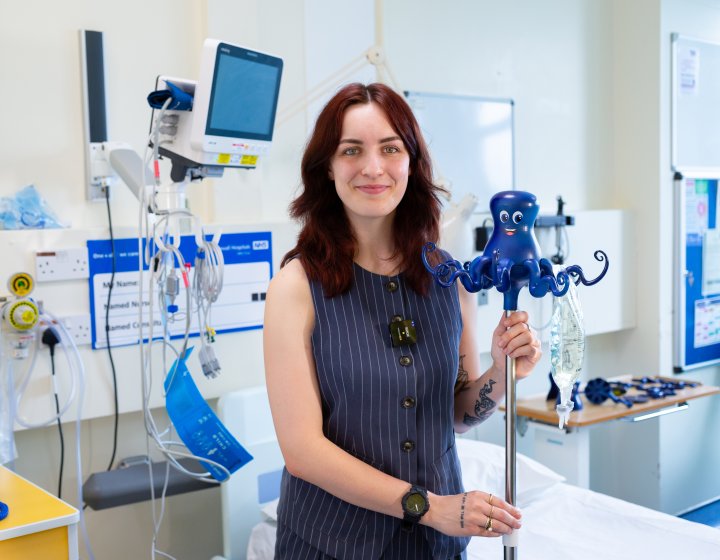
Introducing Olly the Octopus: giving (eight) helping hands to The NHS
01 November 2024
A cheery blue octopus with sturdy tentacles to hold IV drip bags is making waves at Royal Cornwall H...
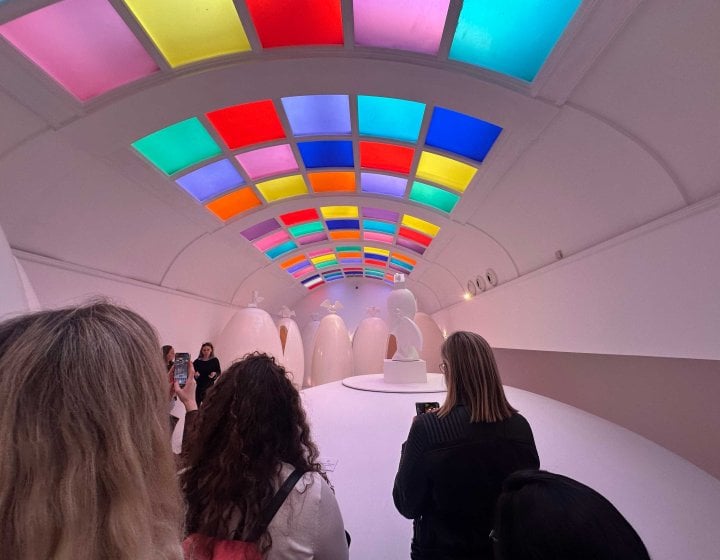
The group at sketch. Photo credit: Ivana Cicchelli
Online Interior Design students experience the heights of London’s interiors scene
21 October 2024
Members of Falmouth’s online Interior Design community explored some of London’s most vibrant in...

Students win four Creative Conscience awards
07 October 2024
Four student projects have scooped award wins in this year's Creative Conscience awards
Learning and support
On this accelerated course you'll learn through recorded learning content, learning activities, forums and design activities, which are available on our virtual learning environment. Presentations, tutorials and team meetings with your online tutor and your peers will provide support and help you to develop ideas. You'll also be encouraged to collaborate, share ideas and to establish a support network with your peers.
What will my study hours be?
Based on the total learning time for the accelerated online courses, an average study week for full-time undergraduate students can be up to 50 hours, and for part-time students, can be up to 33 hours. As our online courses are intended to be flexible the actual time required to study will vary based on the level of study, the module week, and individual learning pace.
On completion of the course you'll have a varied portfolio of creative work and a keen sense of enterprise. These will equip you well to identify, create and respond to the many opportunities that exist throughout the design industry.
What does accelerated study mean?
An accelerated degree condenses your degree modules into two years on the full-time route, or three years on the part-time route. This means you'll be working across three study blocks per year, instead of two, including through the summer. Typically, there is a break of around two weeks between submitting your final assignment for each module and the start of the next study block. You will also get breaks on public holidays, for around two weeks at Easter and for around three weeks in December.
The BA Interior Design course employs a variety of assessment strategies over the course of the year. These include the submission of digital portfolios of work, online presentations, reports and a major practise project.
Your summative (final) assessments occur at the end of each module, usually at the end of the study block. You may also have interim formative assessments part way through a module as well. These assessments help ensure that you remain on track with your work.
You will receive continuous written and/or verbal feedback on all your work throughout the year. At the end of the module you will receive detailed feedback in written form.
You'll be able to check in with your online tutor to discuss your progress and ask any questions you have about your course.
- Dedicated easy-to-use virtual learning environment (VLE)
- Accessible online audio / visual content
- A Student Advisor to support you throughout your studies and access to our Student Support Services
- Access to our Employability Service
- 24/7 access to Falmouth's extensive online library of contextual books, journals and resources
- Access to online software tutorials at LinkedIn Learning
- Students' Union community
- Optional in-person events
- Invitation to attend alumni events
Although online students don't have access to on-campus facilities as part of the course, you can hire equipment and access facilities by paying a charge. Find out more about availability and prices here.
Your online study setup
To get the most out of your online studies with Falmouth, we recommend using a desktop or laptop computer with reliable internet access. This will enable you to fully experience our Virtual Learning Environment, which houses your course material, module videos and webinar recordings, discussion forums and more. Please note while a mobile phone or tablet can support you in your studies, they are not suitable as your primary means of engagement.
If you have any questions, our friendly course advisors are here to help.
Meet the team
Our academic staff members are practising professionals within the design industry and have worked with the likes of Yo! Sushi, Brewdog, Eden Project, Lush and Office Shoes. With an array of specialisms between them, you'll gain current industry insights from across the interior design sector. You'll also learn from practitioners across the globe through live brief projects.

Amanda Losasso
Course Leader, Interior Design BA(Hons) (Online)
Amanda is a Lecturer in Interior Design having joined the university’s interiors team in 2013.&nbs...

Hannah Soulsby
Module Leader, Interior Design BA(Hons) (online)
Hannah Soulsby holds over 10 years’ experience within the industry. Featuring a rich background in...

Olivia Aspinall
Online Tutor
Olivia graduated from Central Saint Martins with a degree in textile design and then went on to spen...
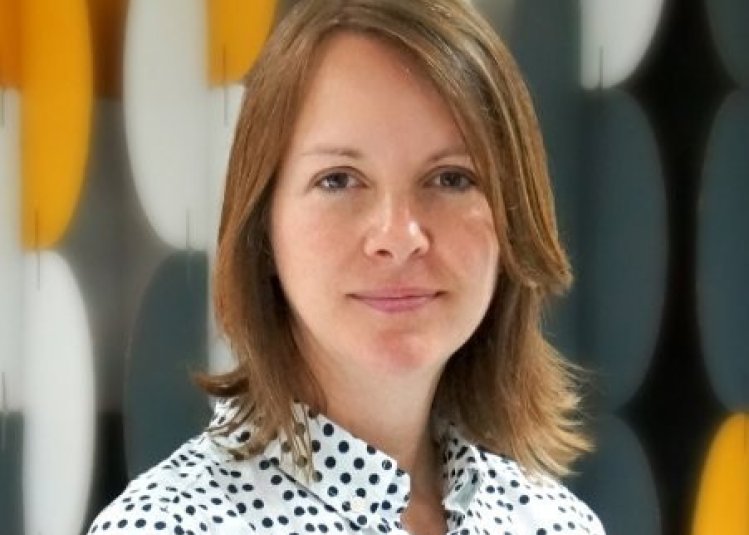
Sara Wilkins
Online Tutor, Interior Design BA(Hons) (Online)
Sara is an Interior Designer with 30 years in the industry working across multiple sectors including...

Joanna Pawlas
Tutor, Interior Design BA(Hons) (Online)
Joanna Pawlas is an ARB/RIBA Chartered Architect with over 15 years of experience designing and deli...

Emma Stevenson
Online Tutor, Interior Design BA(Hons) (Online)
I love interior design because it’s the perfect mix of creativity and problem-solving. There’s s...

Meet your course leader, Amanda Losasso
We talked to course leader Amanda Losasso about her wealth of industry experience, and her research into creative risk-taking.
Read moreSome members of staff only teach on specific modules, and your course might not feature every staff member who teaches on the course.
Careers
As a graduate you could become:
- A junior designer in an Interior Design practice, progressing to designer or senior designer with experience
- A freelance designer or design consultant
- A specialist in FF+E (Furniture, Fixtures and Equipment specification)
- An exhibition or event designer
- An architectural technician
- A visualiser, designer, or project manager in retail, hospitality, residential or workplace design
- An entrepreneur creating your own interior design business
What can you do with a Design, Architecture or Interiors degree?
How to apply
Apply
You have the option to apply via UCAS or directly with us, depending on your education and experience. Find out more about ways to apply.
UCAS codes
You can apply for the September 2026 full-time route through UCAS using:
- University code: F33
- Course code: W2OB (full-time)
| Course route | Course start | Apply now |
|---|---|---|
| Full-time | September 2026 | |
| Part-time | September 2026 | Apply directly |

Application advice & interview information
Go to ToolkitThe application deadline for this course is 7 September 2026. The academic start date is 14 September 2026*.
*Virtual Welcome Week begins the week before the academic start date. During this time, our Student Advisor team will host Welcome Webinars and be in touch with practical information on how to study online.
We consider all applications on their own individual merit and potential.
Our diverse community is creative, innovative and entrepreneurial. We recognise that these qualities aren’t always shown in academic grades alone. That’s why, while many of our applicants achieve high academic grades, we also welcome those who can demonstrate their potential through an exceptional portfolio or performance.
We welcome applications from all subject backgrounds, whether you’ve specialised in STEM, the arts or humanities. Find out more about our Entry Requirements here.
Course routes & entry requirements
BA/BSc(Hons) degree: minimum 64 UCAS Tariff points
Check how many points your qualifications are worth
Portfolio
Some of our online undergraduate degrees require you to create and submit a digital portfolio as part of the application process.
Check our portfolio advice pages for more information
Applying without UCAS points
We'll welcome your application if you have formal or 'certified' learning (such as training courses not run by universities or colleges) and learning from work experience or self-study. This is called Accreditation of Prior Learning (APL), and should have been gained within the last five years, and be equivalent to the learning outcomes of our minimum entry qualifications. Find out more about APL.
At Falmouth, we'll consider the equivalency of your specific qualifications against our entry requirements and support you through your application journey.
View our International Entry Requirements
Language requirements
For applicants whose first language is English we require you to have or be working towards GCSE English Language Grade 4 (C), or equivalent.
If English is not your first language you will need to meet the same standard which is equivalent to the IELTS Academic 6.0 overall score, with at least 5.5 in Reading, Writing, Speaking and Listening. We accept a range of in country equivalencies and approved tests.
If you need a student visa to study in the UK, you may need to take a recognised language test. You can read our English Language Requirements for more information.
For more information about equivalent international qualifications or English language requirements please contact our friendly Course Advisors.
Fees, costs & funding
Tuition fees
| Annual tuition fee | Student |
|---|---|
| £10,400 per year | 2 years accelerated full-time |
| £6,935 per year | 3 years accelerated part-time |
| Annual tuition fee | Student |
|---|---|
| £10,400 per year | 2 years accelerated full-time |
| £6,935 per year | 3 years accelerated part-time |
Tuition fees for September 2027 will be confirmed in summer 2026.
Tuition fees are set annually and are subject to review each year. The University may therefore raise tuition fees in the second or subsequent years of a course, in line with inflation and/or the maximum permitted by law or Government policy. Students will be notified of any changes as soon as possible.
The figures above don't include accommodation and living costs
What funding can I get?
Funding for online study is different to on-campus study. You'll find information about both tuition fees and how you can fund your online study on this page.
Explore funding options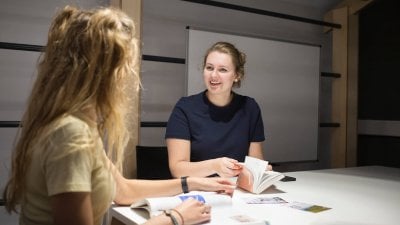
Typical course costs
You will need to have access to a laptop or desktop computer. We strongly recommend that you purchase one before the course commences. It is an essential piece of equipment that you will need right from the start of the course.
When considering the specs of your equipment, the most important things to look out for are the CPU/RAM/Graphics Card, as we use software that needs a large amount of power, especially Revit. We recommend one with as fast a processor as you can afford, 16GB of RAM minimum. and a reasonably sized screen (15” is minimum), plus the following absolute bare minimum computer specifications:
Windows:
- Windows 10
- At least an i7 processor
- No less than 16GB Ram - more is better!
- Graphics Card (Nvidia 1050 minimum - not Intel Iris or XE integrated graphics) with at least 2GB - the bigger the memory the better!
- 512GB hard drive space minimum - bigger = better!
- 1920 x 1080 display resolution or higher. Ideally 4K.
- Mouse with a scroll wheel and two buttons
You will be required to use Windows only software on the course, so an Apple computer will not be suitable for all of your studies. Chromebooks and iPads will not run the software you require for your studies. An iPad however, is a useful secondary machine for digital notetaking and sketching.
Other digital equipment/software:
- Adobe Creative Cloud
- Sketchup - approx. £55
- 16 -32 GB memory stick - approx. £10-20. You will need to be able to back up and save work regularly.
- Wireless or Bluetooth mouse - approx. £15
- Access to either an A3 printer/copier/scanner or photocopying services (Approx £20 printing costs for A3 photocopies)
Recurring annual costs
Process, Drawing and Modelmaking - Materials and Equipment - £150
Adobe Creative Cloud
You will need access to Adobe Creative Cloud. You may be eligible for discounted licenses through Adobe's education pricing and Falmouth University seeks to provide further discounts when possible. If any discounts are available, we will communicate these to you.
For more information please visit Adobe Creative Cloud.
Face-to-face events (optional)
As an online student you will be given the opportunity to attend up to two events per academic year to meet your classmates and tutors in person. Dates and location of the events will vary.
Costs of the events themselves are covered, however you will need to cover your own costs for travel, accommodation, food and drink. More information about these events will be given to you when you start your course, but you should expect them to cost approximately £500-800.
Course equipment and costs
The BA Interior Design Online degree course is studied wholly online. As well as a computer or laptop, you will need a reliable broadband connection. You may wish to investigate the cost of a broadband plug-in dongle if you travel a lot or are worried about your internet usage or connection.
When considering the specs of your equipment, the most important things to look out for are the CPU/RAM/Graphics Card, as we use software that needs a large amount of processing power, especially Revit. We recommend one with as fast a processor as you can afford, 16GB of RAM minimum and a reasonably sized screen (15" is minimum), plus the following absolute bare minimum computer specifications:
Windows:
- Operating System - Windows 10 64-bit or Windows 11
- CPU type - Multi-Core Intel Xeon, or i-Series processor or AMD equivalent with SSE2 technology. Highest affordable CPU speed rating recommended.
- Memory - No less than 32GB Ram - more is better!
- Graphics Card (Nvidia 1050 minimum - not Intel Iris or XE integrated graphics) with at least 2GB - the bigger the memory the better! (For Revit DirectX 11 capable graphics card with Shader Model 5)
- 512GB hard drive space minimum - bigger = better!
- 1920 x 1080 display resolution or higher. Ideally 4K.
- Mouse with a scroll wheel and two buttons
You will be required to use Windows only software on the course, so an Apple computer will not be suitable for all of your studies. Chromebooks and iPads will not run the software you require for your studies. An iPad however, can be a useful secondary tool for digital notetaking, sketching and for creating digital sketchbooks, but is not mandatory.
Other digital equipment/software:
- Adobe Creative Cloud. We anticipate being able to offer a discount for this and will inform you as soon as possible.
- Sketchup pro - approx. £70
- 16 -32 GB memory stick - approx. £10-20. You will need to be able to back up and save work regularly.
- Wireless or Bluetooth mouse - approx. £15
- Access to either an A3 printer/copier/scanner or photocopying services (Approx £20 printing costs for A3 photocopies)
Process, Drawing and Modelmaking - Materials and Equipment - approx. £150 pa Essentials -
- Sketchbook(s) - A5, A4 or A3 depending on your preference
- Scale ruler
- A3/2 layout pad
- A range of pencils – e.g. 4B, HB, 2H 4H
- A range of technical drawing pens e.g. 0.05mm, 0.4, 0.7, 1.0 mm UniPIN or similar make
- Eraser
- Cutting mat – A2/3
- Metal safety cutting edge ie a Maun Safety Ruler
- Retractable craft knife or scalpel and replacement blades
- Masking tape
- Pins (dressmakers steel)
- Spray mount
- Foamboard - 3mm or 5mm thick or corrugated card for model making (available from Amazon in 10xA3 sheets or larger format sizes from your local art supplier)
- An assortment of different coloured cartridge paper for model making and
- experimentation
Nice to have -
- Adjustable set square and T square
- Coloured pencils
- A few marker pens in greys, beige, pale blue etc
- Highlighters
Study trips
As an online student you will be given the opportunity to attend up to two events per academic year to meet your classmates and tutors in person. Dates and location of the events will vary.
These trips are not mandatory, although they are a great opportunity to meet your peers and staff in person and build connections.
Costs of the events themselves are covered, however you will need to cover your own costs for travel, accommodation, food and drink. More information about these events will be given to you when you start your course, but you should expect them to cost approximately £500-800.
Funding
For information about funding available, please visit our student funding pages.
Ask a student
What better way to find out about life at Falmouth University than by asking our current students?
From course details and academic support, to the social scene and settling in, our students are ready and available to answer any questions you might have. Simply set up your account, send them a question and they'll get back to you within 24 hours.
Similar courses
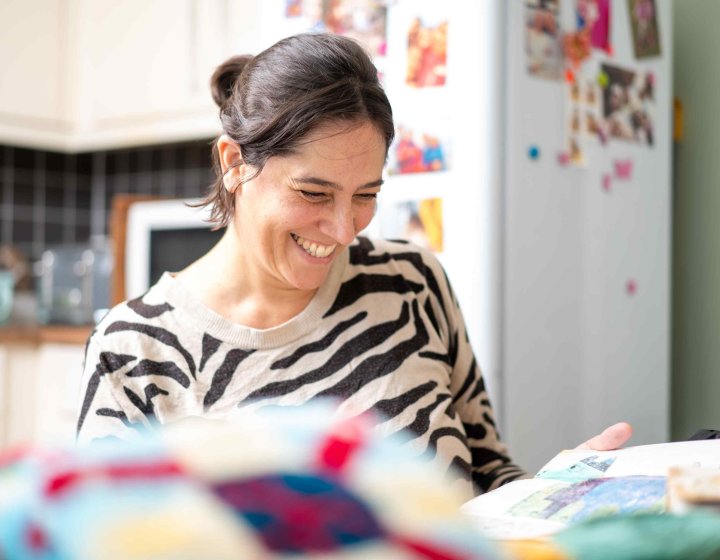
Integrated Master’s Combined Arts MA (Online)
This Combined Arts online degree gives you the opportunity to explore a wide range of creative disci...
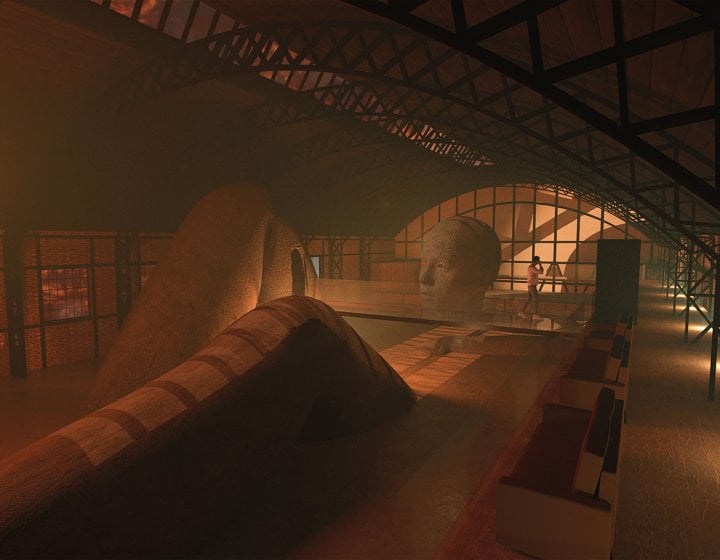
Interior Architecture BA(Hons)
Uncover the impact and potential of the spaces in which we work, rest and play, on this future-focus...
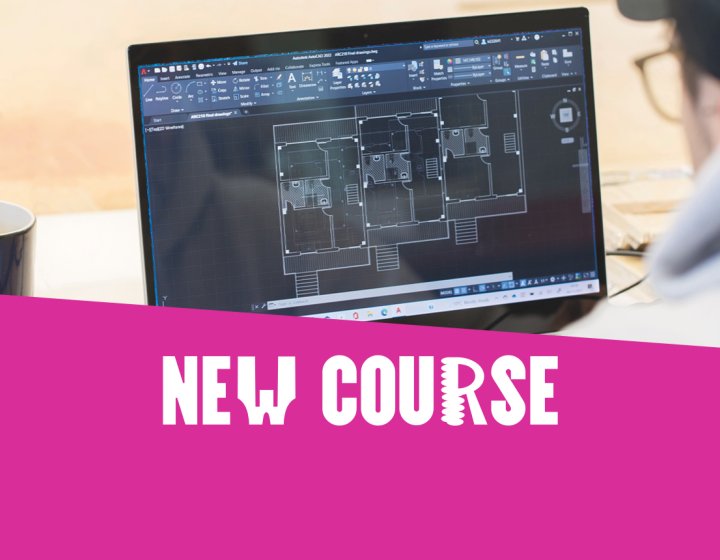
Architectural Design & Technology BA(Hons)
More course information will be provided shortly. In the meantime, if you have any questions you can...
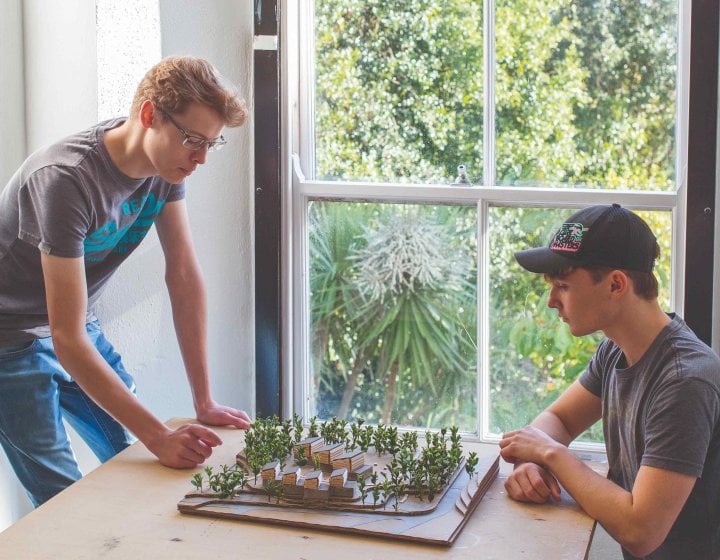
Architecture BA(Hons)
Generate imaginative, impactful designs and start your future career on this highly creative, social...

Graphic Design BA(Hons)
Graphic Design is one of the most versatile visual disciplines, embracing words and pictures, form a...
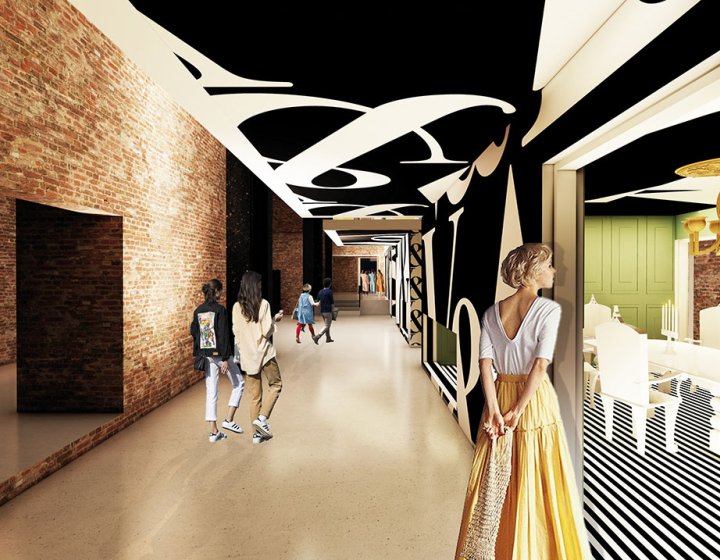
Interior Design BA(Hons)
Delve into the world of built spaces, interior environments and the people who inhabit them. Through...
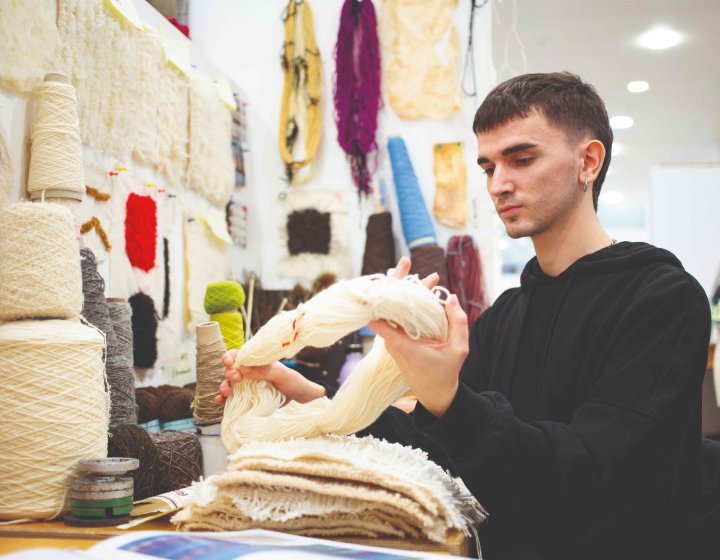
Textile Design BA(Hons)
On our textile design degree, you’ll be part of a vibrant, supportive community of multidisciplina...
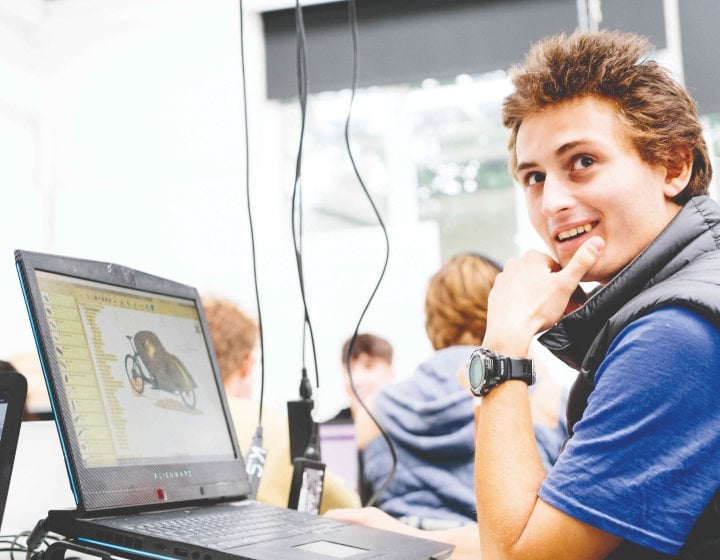
Sustainable Product Design BA(Hons)
Become a conscientious and innovative product designer with the professional practice skills to make...
Speak to an advisor
Do you have questions about the course or studying online with Falmouth? Fill in our simple online form and we'll get in touch to support your application journey.
Submit form